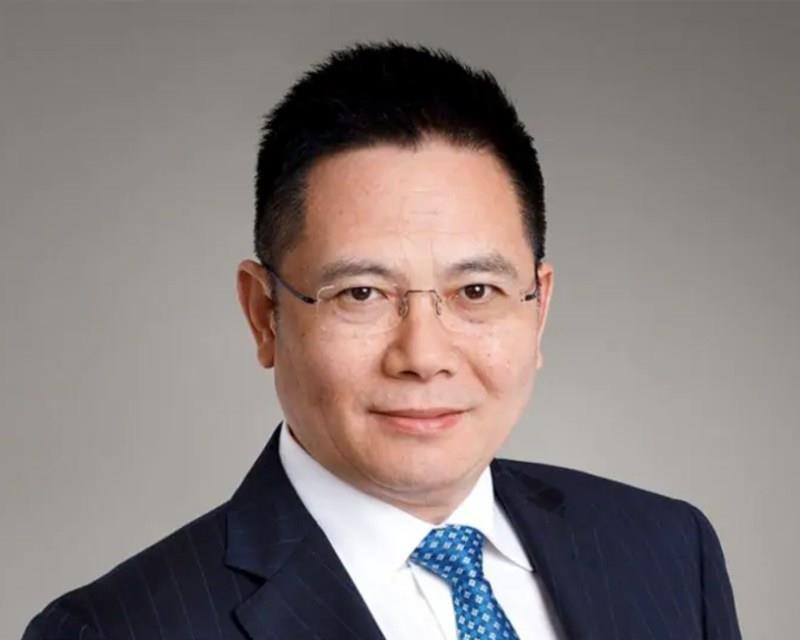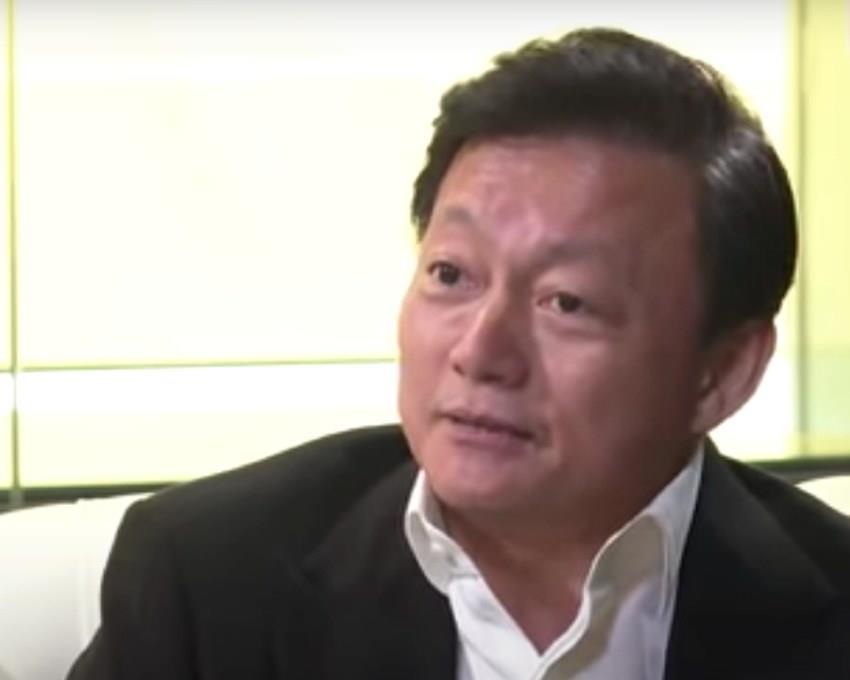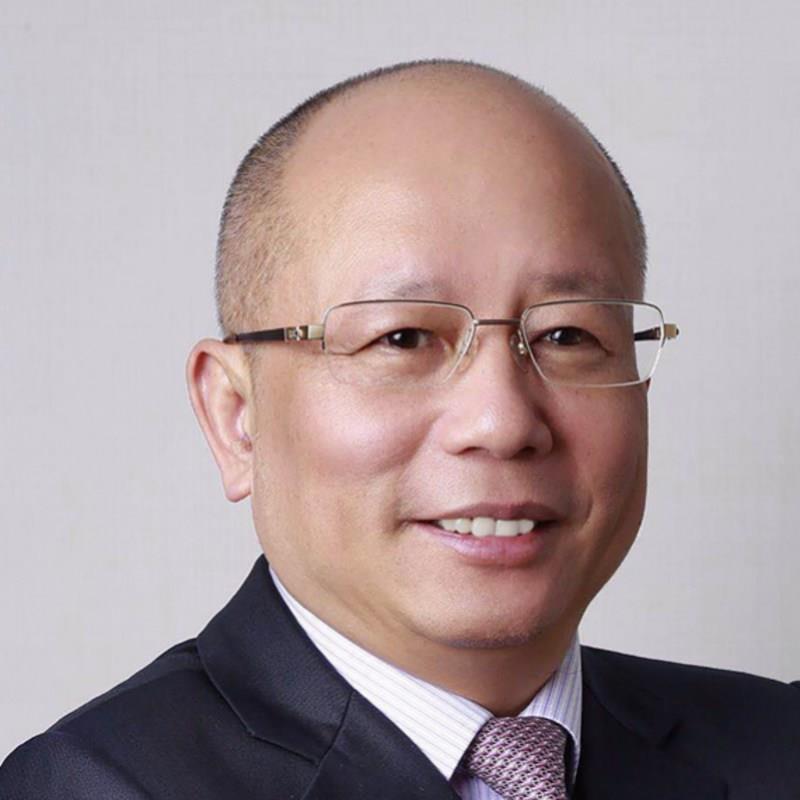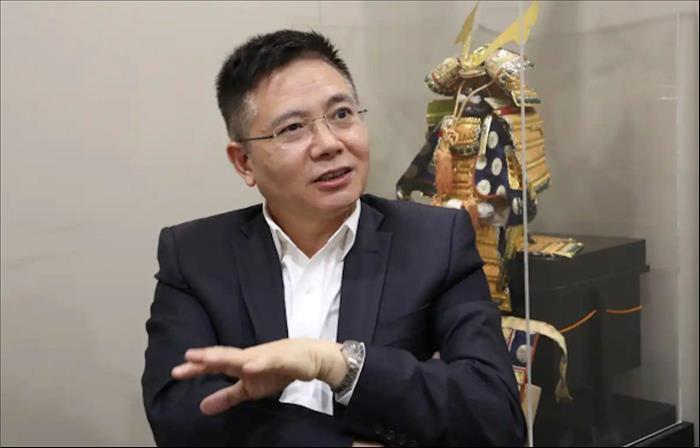
New pro-Beijing party to seek HK hearts and minds
(MENAFN- Asia Times) HONG KONG – A political party formed by a group of pro-Beijing businessmen will participate in the Legislative Council and Election Committee elections and take part in Hong Kong's governance, according to its founder members.
Bauhinia Party, chaired by Li Shan, a member of the Chinese People's Political Consultative Conference, was established on March 1, 2020, and first came to the public's attention on December 9 when the Bauhinia Magazine's website Zijing.org published an interview with Li.
Bauhinia Magazine is a publication wholly owned by Guangdong Xinwenhua Development Co Ltd, which is controlled by the Liaison Office of the central government in Hong Kong. Guangdong Xinwenhua also owns other pro-Beijing newspapers including Wen Wei Po and Ta Kung Pao.

Li Shan, chairman of the Bauhinia Party. Photo: credit-suisse.com
According to the article, Li was born in Weiyuan County, Sichuan province, in 1963. He received his bachelor's degree in economics at the Tsinghua University School of Economics and Management in 1986 and then obtained a master's at the University of California, Davis, and a doctorate from MIT's Department of Economics. Since 1993, he had worked for CS First Boston, Goldman Sachs and Lehman Brothers.
In 1998, he became the deputy chief of a special team to set up an investment bank under the China Development Bank after he wrote proposals to then-premier Zhu Rongji. In the article, a picture taken near his desk shows him shaking hands with Zhu.
Between 2001 and 2005, Li was the chief executive of BOC International Holdings Ltd, a wholly-owned subsidiary of the Bank of China that offers investment banking and securities brokerage services in Hong Kong.
Currently, Li is an independent non-executive director at Credit Suisse Group AG, the president of private-equity firm China Stone Capital and the chief executive of Silk Road Financial Holding.
He once suggested setting up a second bourse in Hong Kong and using quantum computing, blockchain and digital currency technologies to bypass the United States' SWIFT system to ease China's concerns about foreign sanctions.

The party logo. Photo: Bauhinia Party
Li said in the interview that the Bauhinia Party's principle is to 'respect one country, treasure two systems' and safeguard Hong Kong's core values including freedom, democracy and the rule of law.
He said Hong Kong should remain unchanged for another 50 years after 2047.
He added that the party would sponsor and support people to participate in the Election Committee and chief executive elections and would recommend talented people to join the Hong Kong government and its statutory bodies.
On Monday, Li told RTHK in an interview that the Bauhinia Party was hoping to win seats in Legco and on the Election Committee and to join the government's ruling team.
In a reference to the fact the pro-democracy and pro-establishment camps are labeled yellow and blue, respectively, he proclaimed that 'the color of the Bauhinia Party is patriotism.'
Li said he is not a member of the Communist Party of China (CPC). He also dismissed concerns about how well he could serve the people of Hong Kong given that he cannot speak Cantonese, despite having lived in the special administrative region for more than 20 years.
'Hong Kong is Asia's World City. If you do not accept or allow a person who speaks Mandarin to serve the people here, then it won't be an international city,' he said, adding that he would soon learn the local language.
He said he and some 'like-minded people' decided to form a new political party after feeling disheartened by the anti-extradition protests of 2019. He said all the previously existing political parties in Hong Kong 'serve particular classes of people,' such as the labor or business sector, but none serves all Hong Kong people.
Two other key founder members of the Bauhinia Party are CMMB Vision Holdings' chairman and chief executive Wong Chau-chi and Bonjour Holdings Ltd's chairman Clement Chen Jianwen. Li is now an independent non-executive director of CMMB Vision Holdings.

CMMB Vision Holdings' chairman and chief executive Wong Chau-chi. Photo: RTHK
Wong told media last December that the Bauhinia Party was aiming to recruit 250,000 members in Hong Kong, compared with 40,000 members of the Democratic Alliance for the Betterment and Progress of Hong Kong (DAB).
In a recent interview with RTHK, Wong said the Bauhinia Party should have 250,000 members in order to mobilize a population of 7.5 million when there is universal suffrage in Hong Kong. He said the party would not ask members about their backgrounds as long as they agreed with its platforms and wanted to join.
Asked whether it was a right move to arrest and prosecute 47 democrats for allegedly violating the national security law, Wong said he would leave it to the court to judge. He added that if some people use violence on others in the name of democracy, that does not represent freedom and democracy.
He said he had attended a June 4 vigil commemorating the 1989 Tiananmen Square massacre some time ago. The annual vigil was banned last year – supposedly as part of emergency measures to cope with Covid-19, although many doubt it in view of the new National Security Act. It's unclear if it can be revived after the pandemic ends.
He said that as a Hongkonger and a Chinese, he tried to know more about the Tiananmen incident and think about how to prevent it from happening again.

Clement Chen Jianwen, chairman of Bonjour Holdings Ltd. Photo: cagahk.com
Chen has so far not publicly talked about the Bauhinia Party. He is the chairman of the Chinese Academy of Governance (HK) Industrial and Commercial Professionals Alumni Association. Over the past decade, hundreds of Hong Kong businessmen and professionals have joined short-term tours to visit the Chinese Academy of Governance, also known as the Central Party School of the CPC, in Beijing to learn about China. Li is an adviser of the alumni association.
Johnny Lau Yui-siu, a Hong Kong-based political commentator, said most Hong Kong people did not know about the Bauhinia Party and would not accept any party that would only follow Beijing's orders.
Jasper Tsang, the former LegCo President and the founding member of DAB, said in an interview last December that the traditional pro-establishment camp should not be worried too much about the potential rise of the Bauhinia Party.
Tsang said Beijing would not put all its hopes on a group of Chinese businessmen who returned from overseas. He said if the Bauhinia Party failed to get any seats in the coming LegCo elections, it would fade out.
However, Beijing's latest plan to expand the LegCo and allocate at least 30 seats to representatives from the Election Committee will probably help the Bauhinia Party kick start in Hong Kong.
Moreover, the number of seats in the Election Committee will increase from 1,200 to 1,500, providing room for new pro-Beijing groups to emerge. More details about the changes in Hong Kong's electoral systems will be unveiled on Thursday afternoon after the closure of the National People's Congress's annual meeting.
Read: Beijing believes HK electoral reforms will ease conflicts
Read: Beijing raises the bar for Hong Kong candidates

Legal Disclaimer:
MENAFN provides the
information “as is” without warranty of any kind. We do not accept
any responsibility or liability for the accuracy, content, images,
videos, licenses, completeness, legality, or reliability of the information
contained in this article. If you have any complaints or copyright
issues related to this article, kindly contact the provider above.


















Comments
No comment